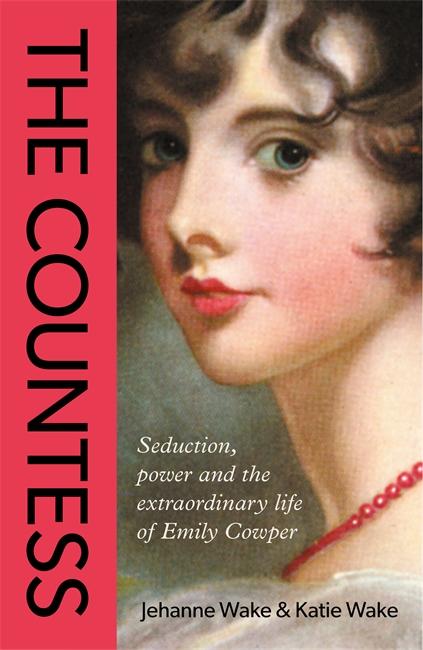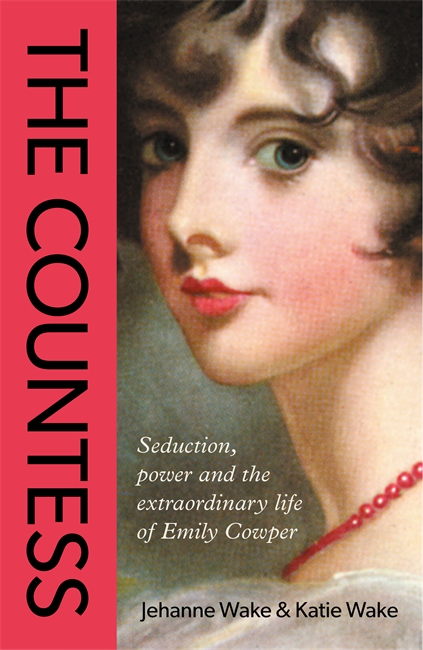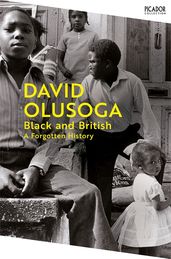
Synopsis
The spellbinding true story of Emily Cowper, Regency socialite turned Victorian powerbroker
Emily, Countess Cowper was stubborn, beautiful and intensely ambitious. She took Regency society by storm, captivating famous statesmen and the young Queen Victoria.
Born the Hon. Emily Lamb, she was brought up at the centre of glamorous Regency high society with its duels and dissipation. Her godmother was the infamous Georgiana, Duchess of Devonshire, and Lord Byron an acolyte and admirer. When her marriage to Earl Cowper soured, she took a string of lovers, eventually taming a rake: the promising, promiscuous Lord Palmerston.
Emily's life resembled real life Bridgerton - she even inspired the character Cressida Cowper. But her petticoats and parties belied a steely determination. Yearning for power beyond the ballroom, she used her political genius to engineer the premierships of her brother, Lord Melbourne, and her lover, Lord Palmerston. Once in Downing Street, she acted as chief counsel, speechwriter, press officer and tireless schemer for the Whig cause - from women's rights to the eradication of slavery. By proxy she became one of the most powerful people in England and changed the course of history. But her story has never been told - until now.
Written with novelistic richness and extraordinary detail drawn from thousands of intimate letters and journals. The Countess unveils the life of this exceptional woman and offers a new insight into the time in which she lived.
Praise for Jehanne's writing:
'Fascinating . . . a rare pleasure' - Sunday Times
'A truly remarkable accomplishment' - New York Times
'Superbly researched' - Guardian
'Wake has uncovered, and animated, a whole new lost world' - Independent
'A page turner' - Literary Review
Emily, Countess Cowper was stubborn, beautiful and intensely ambitious. She took Regency society by storm, captivating famous statesmen and the young Queen Victoria.
Born the Hon. Emily Lamb, she was brought up at the centre of glamorous Regency high society with its duels and dissipation. Her godmother was the infamous Georgiana, Duchess of Devonshire, and Lord Byron an acolyte and admirer. When her marriage to Earl Cowper soured, she took a string of lovers, eventually taming a rake: the promising, promiscuous Lord Palmerston.
Emily's life resembled real life Bridgerton - she even inspired the character Cressida Cowper. But her petticoats and parties belied a steely determination. Yearning for power beyond the ballroom, she used her political genius to engineer the premierships of her brother, Lord Melbourne, and her lover, Lord Palmerston. Once in Downing Street, she acted as chief counsel, speechwriter, press officer and tireless schemer for the Whig cause - from women's rights to the eradication of slavery. By proxy she became one of the most powerful people in England and changed the course of history. But her story has never been told - until now.
Written with novelistic richness and extraordinary detail drawn from thousands of intimate letters and journals. The Countess unveils the life of this exceptional woman and offers a new insight into the time in which she lived.
Praise for Jehanne's writing:
'Fascinating . . . a rare pleasure' - Sunday Times
'A truly remarkable accomplishment' - New York Times
'Superbly researched' - Guardian
'Wake has uncovered, and animated, a whole new lost world' - Independent
'A page turner' - Literary Review
Details
Imprint: Ithaka




















